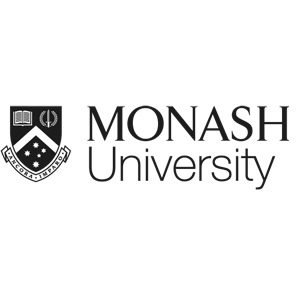How To Choose A Career That Lasts, According To People Who’ve Done It
"It's not so much about whether a job will go the distance; it's more about making sure that you have the skills and attitude to go the distance."


The world is changing. Get ready for a new future.
As the world continues to battle through a major health crisis and a global economic downturn, it’s become clear that some careers were built to last while others have passed their expiration date.
So, how are you meant to choose what you want to do for the rest of your life when you’re not even sure your job will exist in a few years? To help soothe your unease, we’ve talked to three kickass individuals working in businesses that are thriving during the COVID-19 crisis.
Here are their top tips for staying ahead of the curve.
Always Add Value
As the head of procurement at Nando’s, Cynthia Chung knows what it takes to keep her career fresh and spicy (I’m so sorry).
Cynthia first became super skilled at navigating professional waters after completing her MBA at Monash University and exposing herself to a global way of thinking. “Those years really taught me to open up my thinking,” she says. “I learned how my decisions potentially impact other parts of [a] business.”
After her MBA, Cynthia found her calling in procurement and commercial roles. “I really enjoy what I do because it allows you to use so many different skills – from finance to analytics, contract management, negotiation and relationship skills.”

Image: Austin Distil / Unsplash
Throughout her career, Cynthia has applied these talents to roles within a number of industries and has also strategically chosen positions that align with her own values. “I have been deliberate in choosing which companies I want to work for,” she says. “But what’s really helped me is that I’ve always pushed myself to learn and grow in each position.”
Cynthia believes stepping out of your comfort zone and keeping an open mind can help ensure professional longevity. So, what does that look like in the real world?
“Volunteer for different projects and ask to be involved in different things – don’t have that mentality of ‘oh that’s not my job’,” she says.
“You need to understand what’s out there and how you can apply that to what you do and then make it better. Adding value keeps you relevant, and that will help you keep a job.”
Set Yourself Apart
As a recruitment manager for EY, Manisha Maligaspe knows what it takes to future-proof a career. “We all have to be flexible in this day and age,” she says. “No one’s job is safe in the current environment especially due to globalisation, automation and the current global pandemic.”

Image: Ketut Subiyanto / Pexels
Having completed a degree in management and economics at Monash Uni, Manisha didn’t initially know which professional path she wanted to go down. But after meeting with recruiters and recognising the breadth of the industry, her decision was made.
“I knew broader HR in any organisation would be important, because it’s all about looking after your people,” she explains. “For recruiters with our skillset, we can be utilised across the wider HR function to help the learning and development teams, assist with people issues, wellbeing courses, WH&S, and we can flex these skills as necessary.”
Manisha’s current career advice echoes what she provides her own candidates with: “You need to set yourself apart to stay ahead,” she says. “Show yourself to be that trustworthy employee: the person who can be relied upon to take on new projects, demonstrate your integrity, be a strong team player, always be intellectually curious and don’t strive for ‘good enough’.”
Focus On What You Love Doing
Dallan Cape-Murphy loved his time at Monash University so much he returned to campus years later as a full-time alumni engagement adviser. But Dallan’s journey didn’t follow a linear path.
“I’d done a Bachelor of Commerce and had the best time at uni getting involved in the Business and Commerce Students’ Society and building a network of friends who were all high achievers,” Dallan explains. “This gave me some really good soft skills and introduced me to working in a team, delegating and the importance of professional networking and social events.”

Image: Helena Lopes / Pexels
After graduating, Dallan worked across a number of industries including accounting and event management – but his love of communicating and networking saw him follow his passion all the way back to the education sector.
“I really love helping people and managing teams, and I already had experience in that sense, so it really came back to those soft skills.”
Reflecting on his journey, Dallan believes current jobseekers need to follow their passion. “Don’t be sold one job or role – focus more on the areas of interest that you care about,” he says. Dallan suggests building your network, doing your research and reaching out to potential mentors.
“Fundamentally it’s not so much about whether a job will go the distance; it’s more about making sure that you have the skills and attitude to go the distance.”
Discover more about degree options from Monash Business School and be ready for a new future.